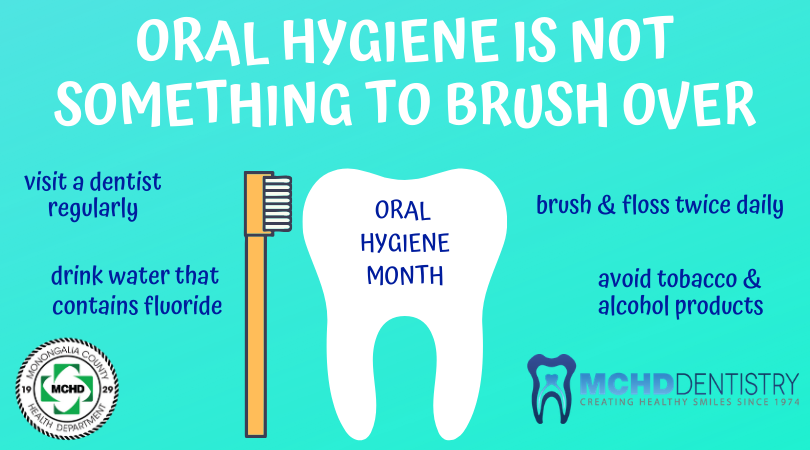Oral hygiene: It's not something to brush over

Oct. 24, 2019
By Kenzie Bostick
Oral hygiene for adults involves a bit more than simply brushing or flossing. Aside from brushing your teeth and flossing, it is also helpful to use products that contain fluoride. The Centers for Disease Control and Prevention recommends avoiding tobacco and alcoholic products.
Having a dry mouth can cause your oral health to decline, so it is best to avoid this by making sure you drink plenty of water and avoid medications that can cause a dry mouth.
If you are pregnant, the CDC recommends visiting a dentist before birth, in addition to brushing and flossing twice daily. Nausea and sickness caused by pregnancy can damage your tooth enamel, so rinse with baking soda in a glass of water to remove the stomach acid and keep your teeth protected.
Not practicing good oral hygiene can lead to several painful conditions, including cavities, gum disease, oral cancer and tooth loss. The risk of these painful diseases increases as people age. This is due to receding gums, dry mouth, and limitations on vision, physical movement, and psychological health.
Cavities are the most common oral health problems. Your chances of getting cavities increases if your family has them, if sugary food and drinks make up a large portion of your diet, you have braces, or have special care needs.
We already know that oral hygiene in the United States needs improvement, and that socio-economic factors can make a difference.
According to the CDC, cavities are one of the most common chronic diseases of childhood in the U.S. Untreated cavities can cause pain and infections that may lead to problems with eating, speaking, playing and learning.
Also, the CDC reports, about 1 in 5 children ages 5 to 11 years of age have at least one untreated decayed tooth. About 1 in 7 adolescents ages 12 to 19 years old have at least one untreated decayed tooth. And, at 25 percent, children ages 5 to 19 years of age from lowincome families are twice as likely to have cavities than children from higher-income households. That figure is 11 percent.
MCHD Dentistry is a full-service dental office that your family can make their dental home. MCHD Dentistry takes several different insurances and West Virginia Medicaid and CHIP. There is also a new patient special, a sliding scale fee and CareCredit.
Contact MCHD Dentistry at 598-5108 for more information and to make an appointment. Following these tips can keep you smiling for a lifetime.
Kenzie Bostick is a public information office intern at Monongalia County Health Department.